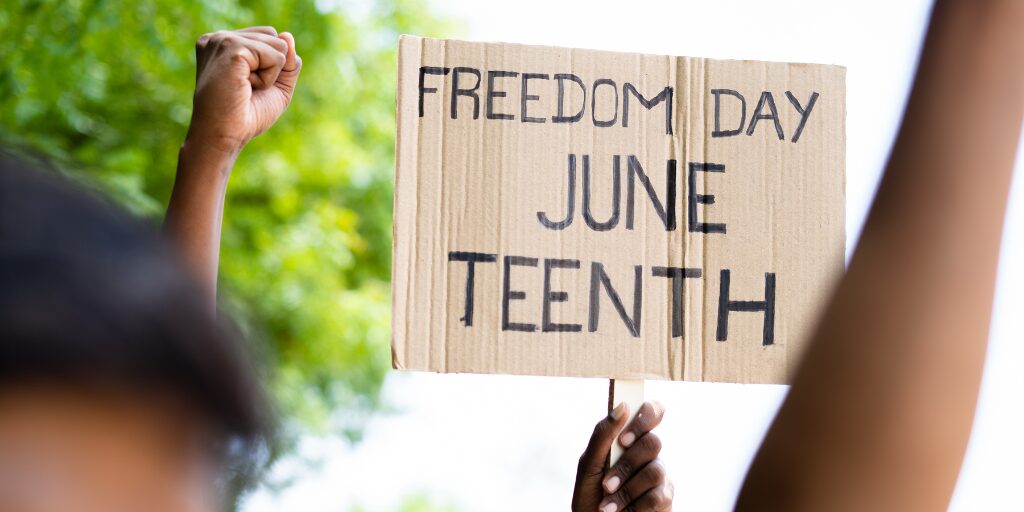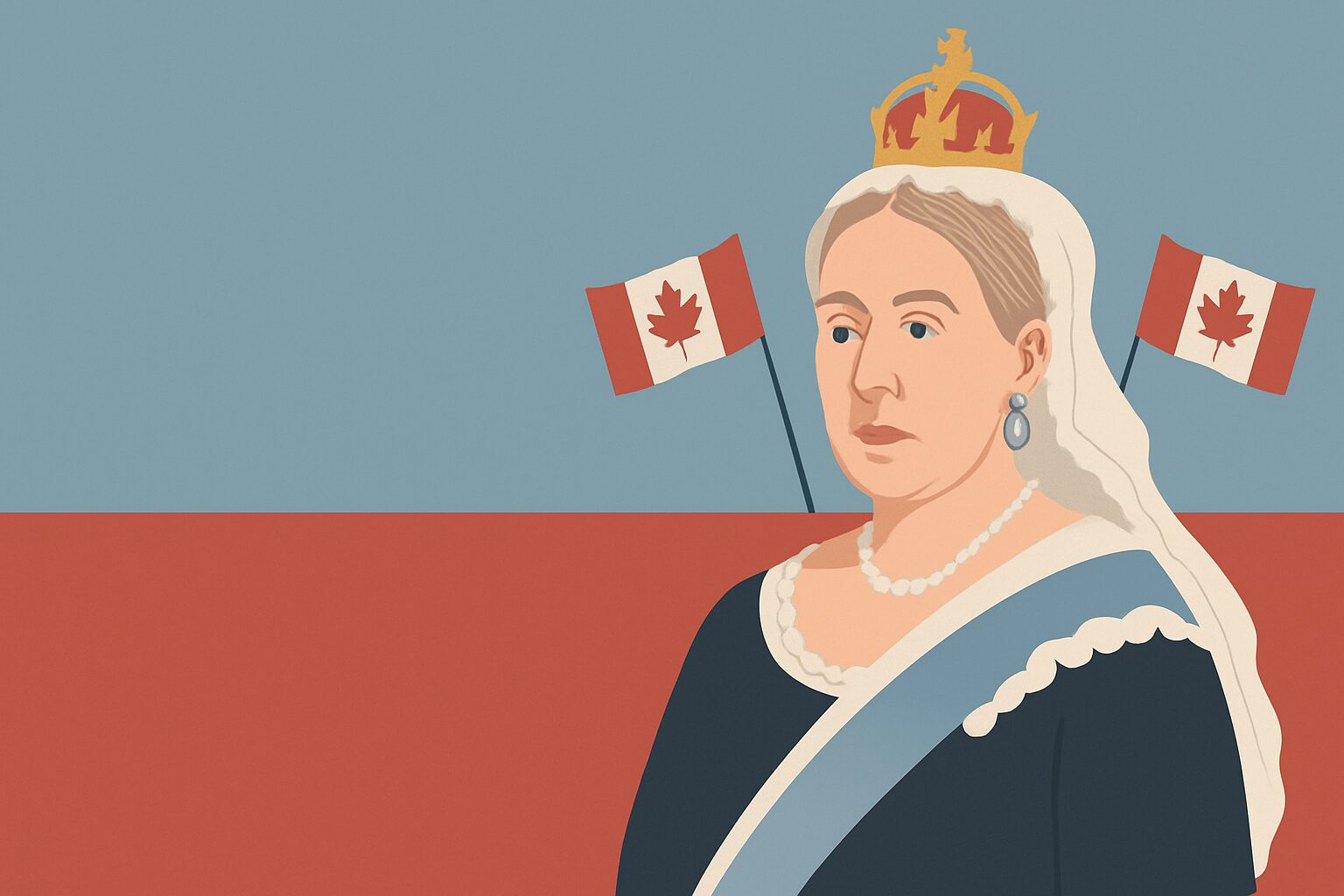Juneteenth, celebrated on June 19, marks a pivotal moment in American history—the end of slavery in the United States. While many recognize July 4 as Independence Day, fewer know about this important date that symbolizes freedom for African Americans. This article explores the origins of Juneteenth, its transformation into a federal holiday, and how communities celebrate this significant day. With Juneteenth 2025 on the horizon, it’s a great time to reflect on its past, present, and future.
Key Takeaways
- Juneteenth celebrates the emancipation of the last enslaved African Americans in 1865.
- The holiday gained federal recognition in 2021, becoming America’s newest federal holiday.
- Opal Lee played a crucial role in advocating for Juneteenth’s national recognition.
- Celebrations have evolved from church gatherings to large community festivals across the nation.
- As we approach Juneteenth 2025, there is a growing focus on educating younger generations about its significance.
Understanding The Origins Of Juneteenth
The Emancipation Proclamation
The Emancipation Proclamation, issued by President Abraham Lincoln on January 1, 1863, declared that all enslaved people in Confederate-held territory were to be freed. It’s important to remember that this was a wartime measure, and its immediate impact was limited. It didn’t apply to slave-holding states that hadn’t seceded, or to parts of the Confederacy already under Union control. The Proclamation did, however, signal a shift in the Union’s war aims, framing the conflict increasingly as a fight against slavery. It paved the way for the 13th Amendment, which ultimately abolished slavery nationwide. The Emancipation Proclamation’s impact was more symbolic at first, but it set the stage for Juneteenth.
The Significance Of June 19
June 19, 1865, marks the day that Union General Gordon Granger arrived in Galveston, Texas, and issued General Order No. 3, informing the people of Texas that all enslaved people were now free. This was more than two years after the Emancipation Proclamation. Texas was the last Confederate state to have a significant number of enslaved people and the last to receive the news of emancipation. The delay was due to a combination of factors, including the state’s remoteness, the limited presence of Union troops, and the determination of slaveholders to maintain their system of forced labor. The arrival of Granger and his troops finally enforced the Proclamation in Texas, bringing freedom to over 250,000 enslaved people. This day became known as Juneteenth, a portmanteau of “June” and “nineteenth,” and is celebrated as a day of liberation and reflection. It’s a reminder of the long road to freedom and the ongoing struggle for equality. The historical legacy of Juneteenth is a powerful reminder of the past.
Opal Lee’s Activism
Opal Lee is often called the “Grandmother of Juneteenth” because of her tireless efforts to make Juneteenth a federal holiday. Born in 1926, Lee has dedicated much of her life to educating people about Juneteenth and advocating for its recognition. In 2016, at the age of 89, she began walking from Fort Worth, Texas, to Washington, D.C., to raise awareness. She walked 2.5 miles each day to symbolize the two and a half years it took for the news of emancipation to reach Texas. Her dedication and perseverance played a significant role in the passage of the Juneteenth National Independence Day Act in 2021. Opal Lee’s activism highlights the importance of individual action in achieving social change. Her work ensures that the history and significance of Juneteenth are remembered and celebrated for generations to come. Opal Lee’s activism is a testament to the power of perseverance.
The Historical Context Of Juneteenth
The Civil War Era
The Civil War, which raged from 1861 to 1865, serves as the essential backdrop to understanding Juneteenth. It was a conflict fought over the very soul of the nation, primarily concerning the issue of slavery. While many focus on battles and political strategies, it’s easy to forget the human element – the millions of enslaved people whose lives were directly impacted. The war created the conditions that would eventually lead to emancipation, though the path was far from straightforward. The Civil War’s impact extended far beyond the battlefield, shaping the social and political landscape for generations to come.
The Last Holdout In Texas
Texas, being the westernmost Confederate state, found itself in a unique position during the Civil War. News traveled slowly, and federal authority was weak. Even after the Emancipation Proclamation in 1863, slavery continued in practice there. It wasn’t until June 19, 1865, when Union General Gordon Granger arrived in Galveston, Texas, and issued General Order No. 3, that enslaved people in Texas finally learned of their freedom. This lag in communication and enforcement is why Juneteenth is specifically tied to Texas. The day marks the delayed but eventual arrival of freedom for those held in bondage in the state.
The 13th Amendment
While the Emancipation Proclamation was a monumental step, it wasn’t the end of the story. The Proclamation, issued by President Abraham Lincoln, only applied to Confederate states in rebellion. It didn’t address slavery in the Union states that still permitted it. The 13th Amendment, ratified in December 1865, took the critical further step of abolishing slavery and involuntary servitude throughout the entire United States. This constitutional amendment provided the legal foundation for true freedom, solidifying the promises made on Juneteenth and ensuring that slavery could not be reinstated. It’s important to remember that Juneteenth celebrates the news of freedom arriving in Texas, while the 13th Amendment provided the legal basis for that freedom nationwide.
Celebrating Freedom: Juneteenth Traditions
Early Celebrations
Juneteenth celebrations started small, mostly within Black communities in Texas. Because of segregation, early celebrations often took place at churches or near rivers and swimming holes. These gatherings were a chance to celebrate freedom and community. It was also common for formerly enslaved people and their descendants to make a pilgrimage to Galveston. Early Juneteenth events often included activities like baseball games, fishing, and rodeos. These events were more than just fun; they were a way to express newfound freedom and build community bonds.
Modern Festivities
Today, Juneteenth celebrations have grown and diversified. Modern Juneteenth events often include parades, festivals, and educational activities. You’ll find everything from historical reenactments to blues festivals. A big part of modern Juneteenth is about teaching African-American heritage. Many celebrations include lectures, exhibitions, and voter registration drives. It’s also common to see public readings of the Emancipation Proclamation and performances of traditional songs like “Swing Low, Sweet Chariot” and “Lift Every Voice and Sing.”
Cultural Significance
Juneteenth is more than just a holiday; it’s a cultural touchstone. Red food and drinks, like red velvet cake and strawberry soda, are traditional, symbolizing resilience and joy. The holiday is a time for family reunions, cookouts, and community gatherings. Juneteenth serves as a reminder of the long journey toward freedom and equality. It’s a day to celebrate African-American culture and to reflect on the ongoing fight for civil rights. The spirit of Juneteenth is about celebrating, educating, and advocating for a better future. The holiday is considered the “longest-running African-American holiday”.
Juneteenth As A Federal Holiday
The 2021 Legislation
In 2021, Juneteenth officially became a federal holiday. President Joe Biden signed the Juneteenth National Independence Day Act into law, marking a significant moment in American history. This made Juneteenth the first new federal holiday since Martin Luther King Jr. Day was established. It’s a pretty big deal, considering how long people have been pushing for this.
Impact Of Federal Recognition
Federal recognition has elevated Juneteenth’s status. It’s not just a state or local thing anymore; it’s a national day of remembrance and celebration. This means federal employees get a paid day off, and it encourages broader participation in Juneteenth events across the country. Plus, it brings more attention to the history and significance of the holiday, which is always a good thing. More people are learning about it, and that’s what matters.
Comparison With Other Holidays
Juneteenth joins a select group of date-specific federal holidays, like New Year’s Day, Independence Day, Veterans Day, and Christmas Day. Unlike some holidays with religious roots, Juneteenth is rooted in a specific historical event – the emancipation of enslaved African Americans in Texas. It serves as a reminder of the long journey toward equality and justice in the United States. It’s a day to reflect, celebrate, and keep pushing for a better future. It also falls within the Honor America Days period, which spans from Flag Day to Independence Day.
The Role Of Community In Juneteenth
Local Celebrations
Juneteenth is really about community. It’s not just a day off; it’s a time for people to come together and remember history. Local celebrations are where it’s at. Think parades, cookouts, and festivals. These events are organized by local groups, churches, and community centers. They often feature music, food, and activities that reflect African American culture. These celebrations provide a space for people to connect, share stories, and celebrate freedom together. It’s a way to keep the spirit of Juneteenth alive and pass it on to future generations.
Community Gatherings
Community gatherings are a big part of Juneteenth. It’s more than just a party; it’s a chance to reflect and connect. People get together for picnics, barbecues, and potlucks. Food is a central part of these gatherings, with traditional dishes like barbecue, red velvet cake, and strawberry soda. These gatherings often include storytelling, music, and dance. They’re a way to honor the past, celebrate the present, and look forward to the future. It’s a time for families, friends, and neighbors to come together and strengthen their bonds.
Educational Initiatives
Juneteenth is also about education. It’s a chance to learn about the history of slavery and the struggle for freedom. Many communities organize educational initiatives around Juneteenth. These can include:
- Lectures and presentations on African American history
- Exhibits and displays showcasing artifacts and stories
- Workshops and discussions on current issues facing the Black community
- Readings of Black literature and poetry
These initiatives help to raise awareness and promote understanding. They’re a way to ensure that the history of Juneteenth is not forgotten and that its lessons are learned. It’s about teaching the next generation about the importance of freedom, equality, and justice.
Juneteenth In Popular Culture
Media Representation
Juneteenth has slowly been gaining traction in mainstream media. For a long time, it was a holiday celebrated within Black communities, but now it’s starting to pop up in TV shows, movies, and news stories. This increased visibility helps more people learn about the history and significance of the day. It’s not just about parades and cookouts; it’s about understanding a crucial part of American history. The media’s role is to keep the story alive and make sure it’s told accurately.
Artistic Expressions
Juneteenth inspires a lot of art. You see it in paintings, sculptures, music, and even fashion. Artists use Juneteenth as a theme to explore ideas about freedom, identity, and the Black experience. These artistic expressions are a powerful way to connect with the holiday on an emotional level. Think about the songs that get played at Juneteenth celebrations – they often tell stories of struggle and triumph. Art helps to keep the spirit of Juneteenth alive and relevant.
Public Awareness Campaigns
There have been more and more public awareness campaigns about Juneteenth, especially since it became a federal holiday. People like Opal Lee have worked tirelessly to raise awareness. These campaigns use social media, community events, and educational programs to spread the word. The goal is to make sure everyone knows what Juneteenth is and why it matters. It’s about educating people so they can understand the history and celebrate the progress that’s been made, while also acknowledging the work that still needs to be done.
The Future Of Juneteenth Celebrations
Anticipating Juneteenth 2025
With Juneteenth 2025 just around the corner, people are already making plans. It’s interesting to see how much bigger the celebrations have gotten since it became a federal holiday. More communities are hosting events, and there’s a real push to make sure the history behind the day isn’t forgotten. I think we’ll see even more educational programs and community involvement this year.
Evolving Traditions
Juneteenth traditions are changing, but the core values stay the same. While the cookouts and red drinks are still a big part of it, there’s also a growing emphasis on education and activism. It’s not just a party; it’s a chance to reflect on the past and think about the future. For example:
- More historical reenactments are popping up.
- There’s a bigger focus on supporting Black-owned businesses.
- People are using Juneteenth as a day to volunteer and give back to their communities.
Engaging Younger Generations
Getting young people involved is key to keeping the spirit of Juneteenth alive. Schools are starting to incorporate Juneteenth into their curriculum, and families are finding creative ways to share the history with their kids. Social media is also playing a big role, with young activists using platforms like TikTok and Instagram to raise awareness and share their perspectives. It’s cool to see how they’re making the holiday their own while still honoring its roots.
Juneteenth And The Civil Rights Movement
Historical Connections
Juneteenth’s story is deeply intertwined with the broader struggle for civil rights in America. While Juneteenth marks the end of slavery in Texas, the fight for true equality was far from over. The Jim Crow era followed, bringing new forms of oppression and discrimination. The spirit of Juneteenth, however, served as a reminder of the freedom that had been won and the work that still needed to be done.
- The early Juneteenth celebrations, often centered around community and church gatherings, provided a space for Black Americans to connect and support each other during times of adversity.
- The stories and traditions passed down through generations kept the memory of slavery alive and fueled the desire for a better future.
- During the Civil Rights Movement, activists drew inspiration from the legacy of Juneteenth, using it as a symbol of resilience and determination.
Modern Activism
During the Civil Rights Movement, the focus shifted towards achieving integration and expanding freedoms, leading to a temporary decline in Juneteenth celebrations. However, the holiday experienced a resurgence in later years, as people began to connect the struggle for civil rights with the ending slavery. In Atlanta, some equality campaigners even wore Juneteenth buttons. The Poor People’s Campaign in 1968, led by Rev. Ralph Abernathy, designated June 19 as “Solidarity Day of the Poor People’s Campaign”.
- Modern Juneteenth celebrations often incorporate elements of activism, such as voter registration drives and community service projects.
- Many activists use Juneteenth as an opportunity to raise awareness about current issues facing the Black community, such as police brutality and systemic inequality.
- Juneteenth provides a platform for discussing the ongoing fight for racial justice and promoting positive change.
Legacy Of Struggle
Juneteenth serves as a powerful reminder of the long and difficult journey towards freedom and equality in America. It acknowledges the pain and suffering of those who were enslaved, while also celebrating the resilience and strength of the Black community. The holiday’s legacy is one of struggle, but also of hope and determination. As historian Isabel Wilkerson noted, the traditions of Juneteenth spread as people migrated, carrying the spirit of the day with them to places like Oakland and Seattle. Even during the Jim Crow era, when celebrations declined, the memory of Juneteenth persisted, particularly in Texas. The Civil Rights Movement later drew inspiration from this legacy, revitalizing the holiday and connecting it to the ongoing fight for equality. Juneteenth’s enduring significance lies in its ability to remind us of the past, while also inspiring us to work towards a more just and equitable future.
Global Perspectives On Juneteenth
International Recognition
It’s interesting to see how other countries view Juneteenth. While it’s primarily an American holiday, its themes of freedom and emancipation can speak to people everywhere. Some nations with significant diasporas of African Americans or those with similar histories of struggle are starting to acknowledge Juneteenth. It’s not a widespread thing, but the seeds are being planted. For example, some schools in other countries might include Juneteenth in their curriculum when discussing American history or the history of slavery.
Comparative Celebrations
Thinking about Juneteenth in comparison to other countries’ celebrations of freedom or independence is pretty cool. Lots of places have their own days marking the end of slavery or colonial rule. It would be interesting to see a table comparing them:
| Country | Holiday | Significance |
|---|---|---|
| United States | Juneteenth | End of slavery in Texas |
| Haiti | Haitian Independence Day | Commemorates independence from France |
| Brazil | Black Awareness Day | Celebrates Afro-Brazilian culture and history |
| South Africa | Freedom Day | Celebrates the first post-apartheid elections |
Cultural Exchange
Juneteenth offers a chance for cultural exchange. It’s not just about Americans celebrating; it’s about sharing the history and meaning of the day with the rest of the world. This could involve:
- Educational programs in other countries.
- Sister-city relationships hosting Juneteenth events.
- Online platforms sharing stories and traditions.
- Collaborative art projects that explore themes of freedom and resilience.
Reflecting on Juneteenth
As we wrap up our look at Juneteenth, it’s clear this day is more than just a celebration. It’s a reminder of the struggles and triumphs that have shaped our nation. While many know July 4th as Independence Day, Juneteenth deserves its place in the spotlight too. It’s about freedom, resilience, and the ongoing fight for equality. Opal Lee and countless others have worked hard to bring this day to the forefront, and now, as a federal holiday, it’s a chance for all Americans to reflect on our shared history. So, whether you’re attending a local event or just taking a moment to think about what this day means, remember: Juneteenth is a celebration of freedom for everyone.
Frequently Asked Questions
What is Juneteenth?
Juneteenth is a holiday celebrated on June 19th. It marks the day in 1865 when enslaved people in Texas learned they were free, two and a half years after the Emancipation Proclamation.
Why is it called Juneteenth?
The name Juneteenth is a combination of ‘June’ and ‘nineteenth.’ It represents the date when the last enslaved people in the U.S. were informed of their freedom.
What was the Emancipation Proclamation?
The Emancipation Proclamation was an order by President Abraham Lincoln in 1863 that freed many enslaved people in the Confederate states during the Civil War.
How did Juneteenth become a federal holiday?
In 2021, Juneteenth was declared a federal holiday when President Joe Biden signed the Juneteenth National Independence Day Act into law.
What kind of celebrations happen on Juneteenth?
Juneteenth is celebrated with parades, music, food, and community events. It often includes cultural activities that honor African American history.
Who is Opal Lee?
Opal Lee is an activist known for her work to make Juneteenth a national holiday. She has been advocating for this recognition for many years.
How is Juneteenth different from Independence Day?
Independence Day, celebrated on July 4th, marks the United States’ independence from Britain. Juneteenth celebrates the end of slavery in America.
What is the significance of Juneteenth today?
Juneteenth is a time to reflect on freedom and equality. It serves as a reminder of the ongoing struggle for civil rights and social justice in America.




